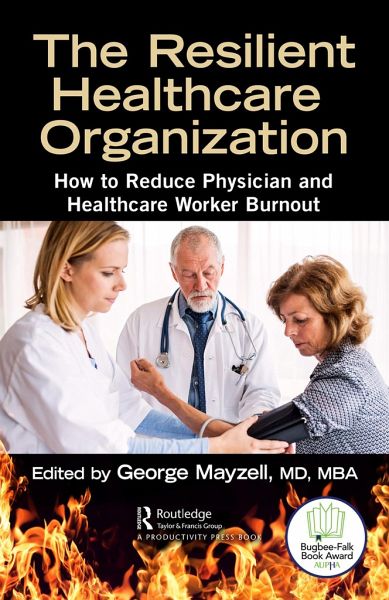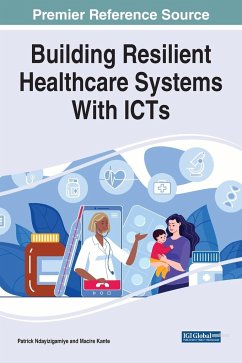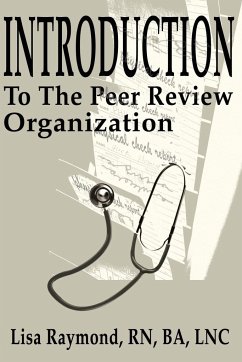
The Resilient Healthcare Organization
How to Reduce Physician and Healthcare Worker Burnout
Versandkostenfrei!
Versandfertig in 1-2 Wochen
55,99 €
inkl. MwSt.
Weitere Ausgaben:

PAYBACK Punkte
28 °P sammeln!
Professional burnout is an epidemic in America. Approximately half of physicians and nurses are affected and at risk for themselves and their patients. Much has been written about professional burnout. The term was originally coined in the 1970s by American psychologist Herbert Freudenberger to describe the consequences of severe stress and high ideals experienced by people working in "helping" professions. Since then, many books have been written to address this looming national public health crisis. But, unfortunately, there has been much less written from a solution standpoint: getting to t...
Professional burnout is an epidemic in America. Approximately half of physicians and nurses are affected and at risk for themselves and their patients. Much has been written about professional burnout. The term was originally coined in the 1970s by American psychologist Herbert Freudenberger to describe the consequences of severe stress and high ideals experienced by people working in "helping" professions. Since then, many books have been written to address this looming national public health crisis. But, unfortunately, there has been much less written from a solution standpoint: getting to the root cause of why this is occurring now more than ever. The Resilient Healthcare Organization engages readers focusing on physicians and healthcare professionals and their experiences and how they overcame a loss of enthusiasm for work, feelings of cynicism, and a low sense of personal accomplishment. The feelings of emotional exhaustion are characterized by depersonalization and perceived ineffectiveness. These are the cardinal features that define "burnout" and affect almost 50% of physicians and 30-70% of nurses. This book addresses why burnout is viewed as a threat and how it can be fought. The author discusses the contributing factors and solutions at the health system and societal level. Additionally, this book explores the current and future etiology and impacts on physicians and healthcare professionals, with a significant emphasis on solutions at both the individual level and the system level. Contributors: Patricia S. Normand MD, Bruce Flareau, MD, Kathleen Ferket, MSN, APRN, Daniel Edelman, DO, and Peter B. Angood, MD.














